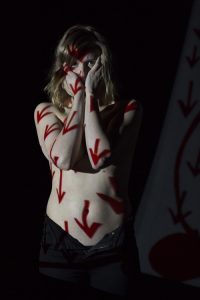September 15th was the inaugural concert of soprano Julia Bullock’s season-long residency at The Metropolitan Museum of Art. This concert, entitled “History’s Persistent Voice,” featured the premiere of works by Tania Leon, Jessie Montgomery, Courtney Bryan and yours truly. Our music was inspired by pieces in the “History Refused to Die,” exhibit featuring works by southern African-American artists on loan from the Souls Grown Deep Foundation. Read the New York Times review by Zachary Wolffe here or below.
The most telling moment in Julia Bullock’s recital on Saturday evening at the Metropolitan Museum of Art came before she’d sung a note.
Featuring settings of the words of black artists from the South and fresh versions of traditional slave songs, this was the first concert in the superb rising soprano’s season-long residency at the Met. The five-event series continues on Dec. 2 with a program of new works with texts by Langston Hughes.
You would expect a musician to bathe in at least a little bit of entrance applause at this, the opening event of one of her most prominent New York showcases to date. But with the lights still up in the auditorium, Ms. Bullock modestly entered with the nine string players. The music began without her swanning on solo — in fact, without any clapping at all.
Ms. Bullock seemed to be emphasizing that, at the Met, she would truly be an artist, not a diva, in residence. It’s not that she’s a reticent singer, but she exudes humility. She serves the work she’s singing, even as she makes it better.
Saturday brought proof of this. The music — a set of premieres — was pretty good; Ms. Bullock’s calm passion made you think that swaths of it were great.
The program, “History’s Persistent Voice,” was tied to “History Refused to Die,” an exhibition of contemporary self-taught black artists on view at the Met through Sept. 23. Images from the show were projected throughout the concert, and some of the sung texts were by or related to artists with works on view.
An interview with Thornton Dial, the maker of grand mixed-media assemblages, inspired the composer Tania León’s uneasy, twitteringly unpredictable “Green Pastures.” Allison Loggins-Hull’s slyly eerie fractured lullaby, “Mama’s Little Precious Thing,” had words derived from a conversation with the granddaughter of one of the artists in the exhibition.
Ms. Bullock offered a stern reading of an excerpt from an interview with the artist Sue Willie Seltzer about the hardness of her life: “I just tried to survive,” Seltzer said. The instrumental work that followed, Courtney Bryan’s “The Hard Way,” was oddly and, I think, overly gentle after those tough words, with an easygoing clarinet solo for Mark Dover.
Jessie Montgomery’s “Five Slave Songs,” richly lyrical but fresh and light in feel, had as a highlight the stark “My Father, How Long?” Ms. Bullock sang with burning focus, as she did the whole set, which brought her mellow, dusky voice from melancholy earthiness to piercing crows. She never milked the emotion or exaggerated her presence; she commands a space without ever trying too hard.



 Flutronix is beyond thrilled and honored to say we are BOTH composers for cellist
Flutronix is beyond thrilled and honored to say we are BOTH composers for cellist